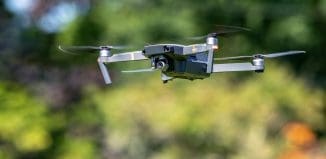Hydrogen Engine Technology for T-20 UAV
This post is also available in:  עברית (Hebrew)
עברית (Hebrew)
The Hydrogen Engine Center (HEC-TINA) and Arcturus UAV have announced a joint partnership to develop a hydrogen-fueled internal combustion engine capable of supporting the T-20 family of unmanned aircraft.
The development is supposed to aid defense organizations who face logistical, safety, and security challenges in the transportation and storage of large amounts of diesel, the most commonly available fuel overseas, required to fuel UAV’s operations. The problem has led to a rise in demand for small UAV heavy fuel engines.
According to uasvision.com, these engines are expensive, unreliable and are a significant cause of aircraft losses due to engine failure.
To resolve these problems, and reduce the risk, reliability, and logistical challenges of shipping gas from the U.S., another fuel alternative is needed. This initiative will enable development of remotely located “filling stations” to both manufacture and store fuel necessary to support UAV operations.
The objectives of this research and development include the ability to provide a long endurance, highly reliable, low heat signature, lightweight, zero- or very low-emission engine; and to develop a system of filling stations engaged in the production and storage of fuel in the region of operations.
The Arcturus UAV’s T-Series catapult launch UAVs deliver heavy payload capacity and endurance in a rugged, deployment proven airframe. Manufactured primarily from carbon fiber, the aircraft design provides a strong cavernous fuselage for integration of over-sized payloads. A central avionics power and signal distribution system provide easy payload interconnectivity.






























